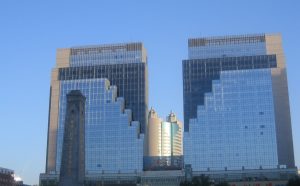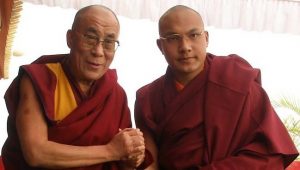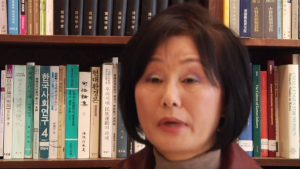In Xinjiang, How Local Prejudices Hinder Economic Development
Memo #57 – According to Marxist theory, only a truly socialist society will produce equality at all levels and eliminate class struggle. Likewise, Chinese political leaders believe that only through socio-economic equality can China eliminate conflict and struggle between the majority and minorities, to solidify national unity. “Development” is thought to be crucial to achieve socio-economic equality, but ethnic prejudice is likely to fuel conflict.
Diverging Patterns for Incorporating Immigrants in Korea and Japan
Memo #56 – In the mid 2000s, Korea and Japan unveiled unprecedented proposals for immigrant incorporation. This included the Basic Act on the Treatment of Foreigners in Korea and the Ministry of Internal Affairs and Communications’ plan for Multicultural Coexistence Promotion in Local Communities in Japan. These plans acknowledged for the first time the need to manage foreigners settled within each country. But they also represented contrasting frameworks for their incorporation. In Korea, there was centralized rights-based legislation that targeted specific immigrant groups and in Japan, there were decentralized guidelines that prioritized community-based partnerships.
Karmapa Controversy – Raid on a Tibetan Monastery in India
Memo #55 – There is media frenzy in India following a police raid on the temple residence of Ugyen Thinley Dorje (ཨོ་རྒྱན་འཕྲིན་ལས་རྡོ་རྗེ།) where $1.6 million in different foreign currencies – some in Chinese yuan – was found. Ugyen Dorje is the 17th Karmapa (ཀརྨ་པ་) and is second only to the Dalai Lama in Tibetan Buddhism.
Examining North Korean Foreign Policy (Video Interview with Dr. Kyung-Ae Park)
Memo #54 – We are witnessing rapid changes in the foreign policy environment of North Korea. These changes have serious regional and global implications. Nuclear weapons, famine, refugees, human rights, and regional security, are issues that, according to Professor Kyung-Ae Park, require a thorough understanding of the domestic and external forces behind North Korea’s foreign policy. Her book, New Challenges of North Korean Foreign Policy brings together 10 of the world’s leading experts to examine the challenges facing North Korea in the foreign policy arena today.
Hu Jintao’s Promise to Business: Can He Deliver?
Memo #53 – Two weeks ago, fourteen of the world’s most powerful CEOs converged on Washington for a brief 45 minute opportunity to engage Chinese President Hu Jintao (Google was noticeably absent). Of the many issues raised, one has been China’s renewed commitment to the protection of U.S. corporate interests in the Mainland. President Hu voiced support for reform, opening-up, transparency, as well as a fair and just investment climate. Hu then highlighted intellectual property (IP) and government procurement as areas where foreign firms have equal treatment to their Chinese counterparts.
Current Convulsions in Mongolia’s Political Party Landscape
Memo #52 – Mongolia is Asia’s only post-socialist democracy and one of few Asian democracies. The political system of Mongolian democracy, like anywhere else, is a working compromise. The renaming and subsequent split of the governing Mongolian People’s Party, the merger of the Civic Will Party with the Green Party, and current discussions about changes in electoral laws suggest a maturing of the party system.
Монголын улс төрийн намууд задрал, нэгдлээр Цагаан сараа угтлаа
Memo #52 – Монгол улс нь Азийн цөөхөн ардчилалын нэг, тэр дундаа ардчилалд шилжсэн Азийн цорын ганц социалист оронд тооцогдог. Тус улсын ардчилалын тогцолцоо нь бусдын адилаар улс төрийн хүчнүүдийн харилцан зөвшилцөл дээр тулгуурладаг. Засгийн эрх барьж буй Монгол Ардын Намын нэрээ сольж, улмаар задралтай золгож, Иргэний Зориг Нам болон Ногоон Нам нэгдэж, сонгуулийн хуулийг өөрчлөх талаар ярилцаж байгаа нь намуудын төлөвшил ид дундаа өрнөж байгаагийн илэрхийлэл гэлтэй.
The Reincarnation of the Asian Monetary Fund: AMRO
Memo #51 – In the annals of Asian mythology, reincarnations of gods are professed to be far more potent than their ineffectual forebears; they are not only able to fulfill unfinished endeavours but also do so more dexterously. If mythology can serve as an indicator, then the recent establishment of the ASEAN +3 Macroeconomic Research Office (AMRO), a reincarnation of the doomed 1997 Asian Monetary Fund (AMF) to be headquartered and operational in Singapore in early 2011, represents a major regional feat. By institutionalizing the regional capacity to financially rescue distressed East Asian economies in moments of peril, the ASEAN hopes to eternally efface the excruciating memories of the Asian financial crisis without having to habitually turn west as they did in 1997.
एशियाई मुद्रा कोष का पुनर्जन्म: एमरो
Memo #51 – एशियाई पौराणिक कथाओं के इतिहास में, देवताओं के अवतार से अधिक उनके निष्प्रभावी पूर्वजों से अधिक शक्तिशाली दूर होना प्रकट कर रहे हैं, वे ही अधूरा प्रयासों को पूरा करने में सक्षम नहीं हैं लेकिन यह भी बहुत अधिक कुशलता से करते हैं. अगर पुराण एक संकेत है, तो आसियान 3 व्यापक आर्थिक और रिसर्च (एमरो) कार्यालय, बर्बाद 1997 एशियाई मुद्रा कोष (AMF) के लिए 2011 के शुरू में मुख्यालय और सिंगापुर में परिचालन किया जा के एक पुनर्जन्म की हाल की स्थापना, के रूप में सेवा कर सकता है एक का प्रतिनिधित्व करता है प्रमुख क्षेत्रीय करतब. क्षेत्रीय क्षमता को संस्थागत करने के लिए आर्थिक संकट के क्षणों में व्यथित पूर्व एशियाई अर्थव्यवस्थाओं बचाव करके, आसियान के लिए सदा के लिए आदतन पश्चिम बारी के रूप में वे 1997 में किया था करने के लिए बिना एशियाई वित्तीय संकट के कष्टदायी यादें मिटाना की उम्मीद है.
Asia Pacific Memo #50 (Special Edition)
Memo #50 – Since July 2010, twice a week, we have published memos of research related to Asia and the Pacific written in an accessible and concise manner. We thank you for your interest and enthusiasm in reading our Memos and watching our video interviews. As of January 2011, Memos are delivered to over 1800 subscribers and our website attracts thousands of visitors per month.



